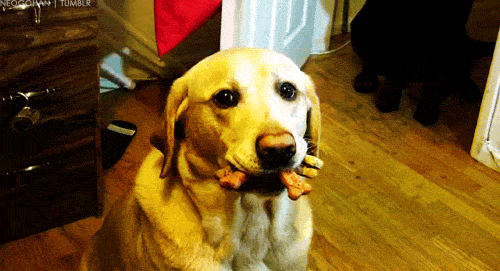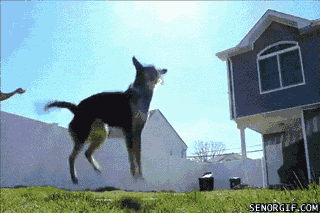
Welcome back to Exteme K9s 101! Today's Extreme K9s are Anatolian Shepherds who became friends with some very strange animals...
"In the African country of Nambia, where farmers and ranchers eke out a living on parched sandy soils, the cheetah is no friend to man. Livestock is a big and tasty temptation to the wild cats, especially during times of drought, when natural prey on the savannah is scarce. And when cheetahs come after livestock, people often shoot them, driven to protect their valuable resource.
The Cheetah Conservation Fund came up with an inspired alternative: offer dogs to farmers to be raised as guardians of the flocks. Anatolian Shepherds, first bred in central Turkey thousands of years ago, were chosen for the job. The dogs are big and loyal, and know how to scare off an already skittish cat like a cheetah. (Wild cheetahs face formidable foes in nature; their ability and readiness to sprint in their best defense.) Keeping the cheetahs from preying on sheep and goats protects them from farmers' bullets and helps take the stain off their reputation--- both good strategies for keeping the species around in the future. The program has been wildly successful.
Now, here's a neat little twist: At zoos in the United States, those same shepherd dogs are being brought in not to chase cheetah's away, but to be their friends.
"We've found so many benefits to pairing young cheetahs with domestic dogs," says Kim Caldwell, animal training manager at the San Diego Zoo's Safari Park. Foremost, as they grow up together, the dog is a security blanket for this animal that's hardwired to be cautious, she says. Body language is key, and the dog--- calm, loving, and adaptable--- helps the cheetahs to relax and accept animals in unfamiliar situations. That makes life less stressful for both the animals and the trainers. "Cheetah's respond differently to us than to other four-legged furry animals with a wagging tail," Kim says. "A dog will lick the cheetah's ears, let it pounce, and chew on him. Better to give the cats a 130-pound dog as a toy than one of us. That way they can really wrestle and play together, which is an important part of learning and socialization."
The San Diego Zoo and Safari Park have also used various mixed-breed pups in their cheetah program, but the shepherds are the best fit. "Some mutts can be just unstoppable," Kim says. The shepherds are very mellow as puppies. Though always ready to roughhouse, they'll also lie down like a big rug and groom or be groomed--- which cheetahs do a lot of the time. "Remember," Kim says, "while most dogs could play 24 hours a day, cats want to sleep for 20 of those"
The animals do have some time apart, and they always eat separately. "Dogs inhale and cats chew," Kim says, so feeding time is where aggression could occur. But once a happy pairing is made between a puppy and a kitten, "they're companions for life."
Article from: Unlikely Friendships Book by Jennifer S. Holland, pp. 19-21
Pic from: http://philippa-pippasplace.blogspot.com/2010/08/dogs-find-work-in-cheetah-conservation.html




No comments:
Post a Comment